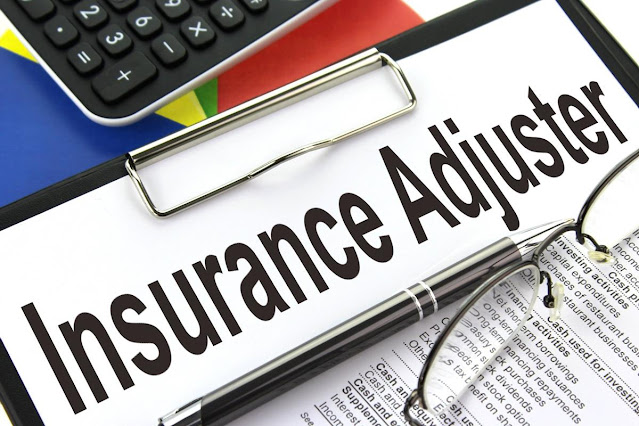HOME INSURANCE CLAIM ADJUSTERS: A COMPREHENSIVE GUIDE TO SUCCESS
An insurance company often employs field adjusters to assess damage and propose compensation or settlement amounts. These individuals typically possess expertise in areas like plumbing, heating and electrical work.
Read ahead to gain more insight into this essential component of homeowners insurance claim filing, as well as familiarize yourself with common home insurance claim adjuster tactics to safeguard yourself against them.
What is a Home Insurance Claim Adjuster?
Home insurance adjusters are professionals tasked with investigating and assessing homeowners’ claims following disaster or loss. Their job involves reviewing damage sustained to assess whether your policy covers it as well as calculating how much will be reimbursed back by insurer.
Insurance adjusters may either work directly for your insurer or be contracted as independent contractors to perform this function on their behalf. Your provider might even employ in-house home insurance adjusters specifically designated to handle larger or more complicated claims. No matter who they work for, home insurance adjusters must operate impartially when assessing and investigating claims.
Insurance adjusters often visit homes that have been damaged and interview witnesses as well as collect photographic evidence to recommend a settlement offer. They might also inspect other parts of the home to assess its severity against your policy coverage and recommend an action plan accordingly.
Unfortunately, insurance adjusters deal with multiple claims daily, and it is all too often the case that their employers or other insurance companies put pressure on them to close claims as quickly and for as little money as possible. This can leave homeowners suspicious that an estimate provided by an adjuster was too low and make the situation even more agitating.
Public adjusters are available to policyholders as an advocate during the home insurance claim process, acting on their behalf in ensuring their claim payout accurately reflects costs to repair or replace property. Their services come at a fee, so policyholders don’t need to do it themselves!
What to Expect When a Home Insurance Claim Adjuster Arrives
Home insurance adjusters are appointed by your insurer to assess any damage resulting from a disaster and determine if your homeowners insurance covers it and calculate how much compensation will be awarded as reimbursement.
Once your insurance adjuster arrives at your house, they will inspect any damage and take notes and photographs as well as taking pictures and/or viewing any other damaged items — likely for storage in digital files created for your insurance provider by them. In addition to your home, an adjuster will check out any other buildings on your property such as sheds; as well as collateral property such as fences, decks, or stamped concrete.
Attending when the adjuster evaluates your property is not mandatory, but it can be beneficial in answering their queries or clarifying any points which are unclear to you.
Be wary of adjusters who appear too friendly when working for the insurance company and trying to settle claims quickly and efficiently. If an adjuster doesn’t offer you a fair settlement offer, attempt negotiating directly. If this doesn’t work out, consider hiring either a public adjuster or lawyer as your representative.
What to Do During a Home Insurance Claim Adjuster Visit
Once you’ve carefully considered all aspects of filing an insurance claim and submitted it with your broker and insurance company, their representative will be dispatched to assess damage on your property. While this meeting can seem intimidating at first, being prepared can make this meeting far less daunting and will ensure an easier experience overall.
At this meeting, an insurance adjuster will ask a series of questions about your loss: where and how it occurred, which items were affected, estimated repair costs for them and any evidence (photos/videos/receipts etc) you have collected in relation to it. He or she will also collect evidence like photos/videos/receipts which you have provided; after compiling all this data a report will be written detailing assessment of damages as well as amount due from insurer for repairs as well as any pertinent details about damages assessed or any pertinent information that pertains.
Be ready to answer these questions honestly and thoroughly, whether the adjuster asks directly or not. While it might be tempting to attempt to fool an insurance adjuster by lying, doing so could significantly harm your claim — and could even constitute insurance fraud! Please read your policy thoroughly in order to get an understanding of its coverage as well as any exclusions that may exist. If negotiating directly with home insurance adjuster is becoming cumbersome or confusing, hiring a public adjuster might help expedite things further along.
What to Do After a Home Insurance Claim Adjuster Visit
No one knows for certain how an insurance adjuster will assess your claim, but the more prepared you are for their visit, the higher the probability is of them giving an accurate and fair assessment. One way of doing this is collecting as much evidence as possible such as photos, receipts and videos as possible as well as compiling an inventory list of all of your items in your home.
Before meeting with an adjuster, ensure all debris has been cleared away and that all areas are safe to walk through. In addition, gathering pre-disaster photos for comparison purposes can also be useful; taking well-lit, clear and sharp photographs can demonstrate the extent of your damage and help support claims.
After reviewing all of your evidence, a home insurance claim adjuster must complete a report that details both damages and expenses associated with making you whole again. When this report has been completed it will be forwarded to your provider’s claims examiner for review and submission.
Once the insurance provider receives the adjuster’s report, they will review and either accept or deny your claim. If you disagree with their estimate, negotiations or representation from an attorney could help resolve your dispute; otherwise they could simply deny your claim altogether or file an appeal with their state’s department of insurance.

.jpg)

Comments
Post a Comment